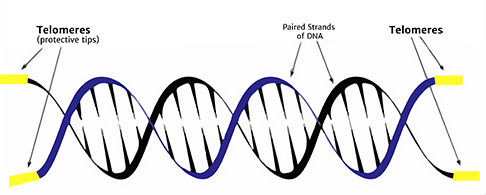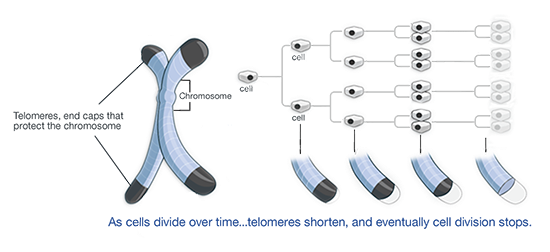Telomeres are an essential part of human cells that affect how our cells age.

Telomeres are the caps at the end of each strand of DNA that protect our chromosomes, like the plastic tips at the end of shoelaces.
Without the coating, shoelaces become frayed until they can no longer do their job, just as without telomeres, DNA strands become damaged and our cells can’t do their job
 Telomeres protect the vital information in our DNA
Telomeres protect the vital information in our DNA
DNA makes up all of the cells in our body. It is the genetic material that makes us who we are. And every organ in our body (skin, liver, heart, etc.) is made up of cells. So, telomeres are vital to our health.
Our cells replenish by copying themselves. This happens constantly throughout our lives. Telomeres get shorter each time a cell copies itself, but the important DNA stays intact.
Eventually, telomeres get too short to do their job, causing our cells to age and stop functioning properly. Therefore, telomeres act as the aging clock in every cell.
Short telomeres are connected to premature cellular aging.
Telomere shortening is involved in all aspects of the aging process on a cellular level. Telomere length represents our biological age as opposed to our chronological age.
Many scientific studies have shown a strong connection between short telomeres and cellular aging.
For example, the immune system, which normally weakens as we age, is highly sensitive to shortening of telomeres. In addition, a 2007 study found that short telomeres were associated with decreases in bone mineral density in women.
